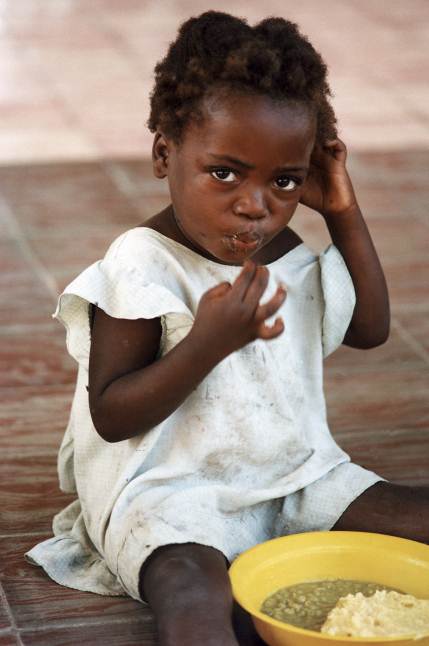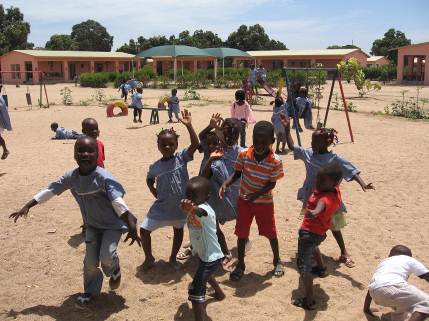Children of war and poverty

Benguela, which is the capital of Benguela Province, is located on the Atlantic Coast some 450 km south of the capital, Luanda. During the civil war, Benguela received large numbers of refugees due to its location in a relatively stable region. This population growth continues to pose a major social challenge, which is aggravated by the general poor health and education situation. Many children, particularly those orphaned during the war, have no one to care for them and are forced to live unsafe lives on the streets. Under such circumstances, they risk falling victim to malnutrition, sexual abuse or violence while they struggle to survive by taking on small casual jobs or committing petty crimes.
Additionally, issues such as poverty, malaria and HIV/AIDS have a huge impact on numerous families who are consequently at risk of falling apart. Landmines still pose a very potent threat in many parts of the country, and it is children in particular who fall victim to them. Landmine survivors face life as amputees, and poor families often send them away as they cannot afford to care for them. Many of these landmine victims are therefore forced to survive in the streets of the cities.
From emergency relief efforts to strengthening families at risk
The long civil war has had a profound negative effect on the country’s social infrastructure, leaving many people without access to education or basic health care. Despite recent growth of the economy, Angola still ranks among the poorest countries in the world. Moreover, only a small part of the population truly benefits from the prospering economy and consequently the number of orphaned children or children at risk of losing parental care remains very high.
While SOS Children’s Villages had been running an emergency relief programme in Benguela since 1994, a more permanent setup was established in 2005. In recent years the family strengthening programme has replaced the emergency relief measures, and our aim is now to strengthen families at risk and help them to stay together. Poverty has been identified as one of the main reasons for families breaking up, so strengthening vulnerable families and helping them reach a position of self-sufficiency is a crucial part of reducing the high numbers of children without care in the region.
What we do in Benguela

More than 120 children can find a new loving home in SOS Children’s Village Benguela, but our organisation also runs a range of programmes that reach out to the surrounding community. An SOS Kindergarten accommodates more than 100 children, thus enabling single mothers to go to work without having to leave their children home alone. The SOS primary school is highly regarded, and children from the SOS families are taught together with children from the local community here. Up to 480 pupils can benefit from access to education.
For the older children in our care, SOS Youth Programmes provide young people with encouragement and support as they become independent adults. Through the SOS Social Centre, we reach out to at-risk families while focussing on households led by a single parent or families who are affected by HIV/AIDS. Often, this support includes such basics as food packages and medical treatment, but the aim is always to help the parents or caregivers to become self-sufficient, so they can take good care of their children. All these efforts are carried out in cooperation with the local authorities, which is important in order to accomplish positive changes for the community in the long term.